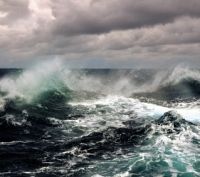

Researchers believe that the loss of Antarctic ice due to an increase in sea temperatures could lead to sea levels rising by as much as three metres.
Scientists at the University of Edinburgh, Northumbria University and the Scottish Universities Environmental Research Centre have been conducting a study to assess how the West Antarctic ice sheet is likely to respond to warmer temperatures.
They were able to predict how levels of ice covering the land have changed over hundreds of thousands of years by studying peaks protruding through ice in the Ellsworth Mountains on the Atlantic flank of Antarctica.
Results suggest that parts of the West Antarctic ice sheet have existed for at least 1.4 million years, and although previous warm periods would have led to a substantial amount of ice melting from the sheet, it would not have melted entirely. The researchers believe that the ice would have been lost from areas below sea level, but not on upland areas.
Dr Andrew Hein, of Edinburgh University's School of GeoSciences, said: ''Our findings narrow the margin of uncertainty around the likely impact of the West Antarctic ice sheet on sea level rise. This remains a troubling forecast since all signs suggest the ice from West Antarctica could disappear relatively quickly.''
Professor John Woodward, of the University of Northumbria, who co-led the study, added: ''It is possible that the ice sheet has passed the point of no return and, if so, the big question is how much will go and how much will sea levels rise.''